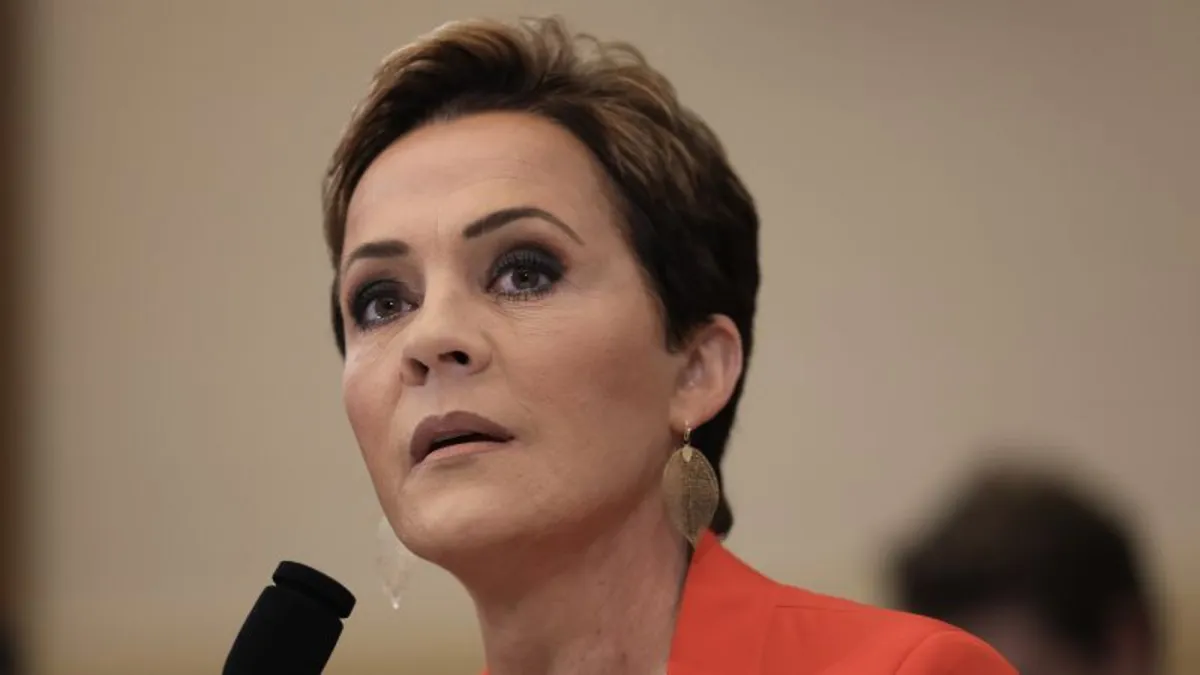
A federal judge has issued a significant ruling that prevents Kari Lake, an ally of former President Donald Trump, from terminating Michael Abramowitz, the director of Voice of America (VOA). Judge Royce Lamberth of the US District Court for the District of Columbia mandated Abramowitz’s reinstatement, asserting that the director must remain in his position until he can be lawfully removed. This decision highlights the ongoing tensions surrounding the governance of the agency.
Lake, who serves as a senior adviser for the US Agency for Global Media (USAGM)—the agency that oversees VOA—previously placed the entire VOA workforce on administrative leave and cut funding for all other U.S.-backed broadcasters. This drastic action occurred shortly after President Trump signed an executive order aimed at significantly reducing the agency's influence.
According to Judge Lamberth’s ruling, Abramowitz can only be removed from his position through a majority vote from the VOA’s advisory board. However, the situation is complicated by the fact that the Trump administration had dismissed the entire board earlier this year. In his opinion, Lamberth noted, “To the extent the Board’s current lack of quorum institutes a practical barrier to removing Abramowitz, the Broadcast Act gives the President a straightforward remedy: replacing the removed members.” This ruling underscores the legal complexities involved in the agency's governance.
Abramowitz had been fired earlier this month after he declined a demotion to serve as chief management officer in Greenville, North Carolina. In a letter, he termed the reassignment “illegal,” emphasizing that his removal could only occur with the board's approval. This legal battle represents a significant setback for Lake, who has sought to exert control over the VOA since her appointment by Trump in February.
The conflict escalated when Abramowitz filed a lawsuit against the Trump administration after Lake attempted to shut down the VOA in March. This lawsuit, among others from media outlets supported by USAGM, sought judicial clarification on whether the government's actions to dismantle the broadcaster were lawful. In April, Lamberth granted the VOA a preliminary injunction, allowing employees to return to work; however, the broadcaster faced substantial layoffs in June that significantly reduced its staff.
During a June hearing, Judge Lamberth questioned Lake about the government's failure to notify him regarding the layoffs. He expressed skepticism when a government attorney claimed that USAGM had complied with his April order “in good faith.” Following this, in mid-August, Abramowitz's legal team requested Lamberth to hold Lake in contempt for her apparent noncompliance with the preliminary injunction. On Friday, Lamberth ordered Lake and two of her aides to testify under oath by September 15, indicating that she was “verging on contempt of court” due to her lack of transparency regarding her intentions for the VOA.
Initially appointed by Trump in December, Lake's role has been contentious given that federal law prohibits the president from directly naming the agency’s director. Instead, Trump appointed her as a senior adviser with oversight responsibilities. Lake claims she assumed the position of deputy chief executive in July and later adopted the title of “acting chief executive” after the acting CEO, Victor Morales, was placed on indefinite leave.
As this situation unfolds, the implications for the governance of the Voice of America and its editorial independence are profound. Both Lake and Abramowitz’s legal teams have not responded to requests for comment from CNN, leaving many questions about the future leadership of VOA unanswered.